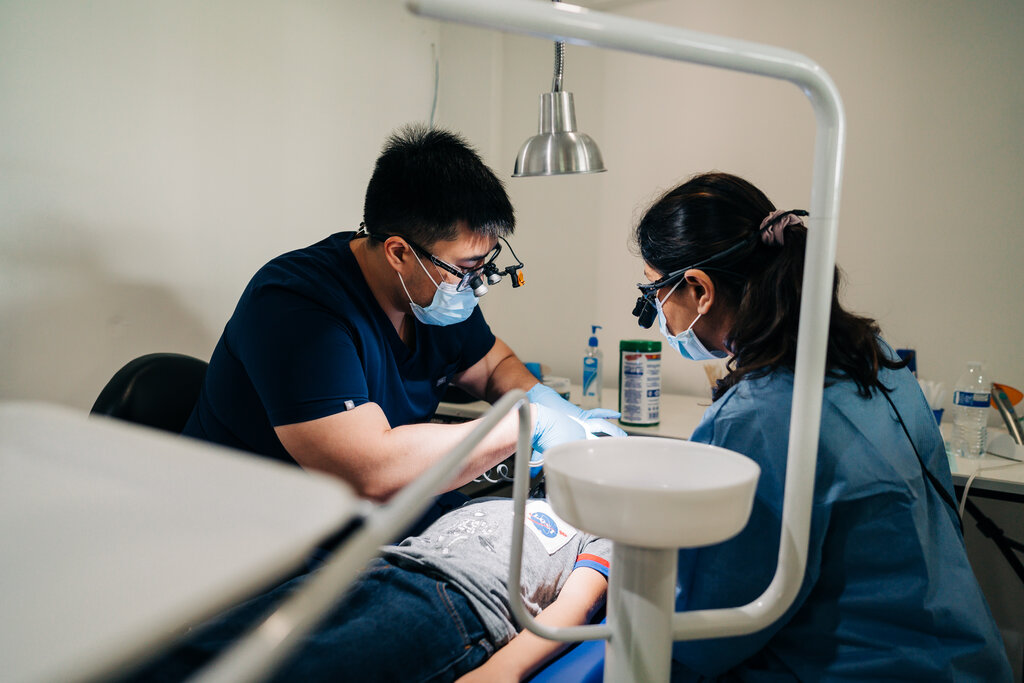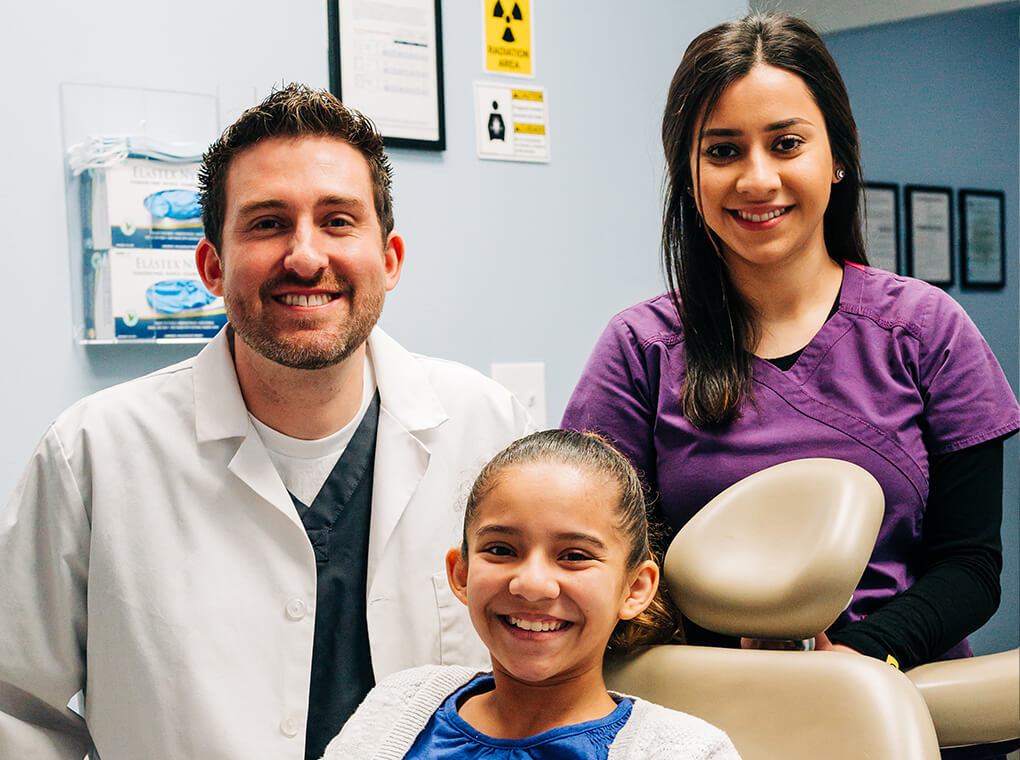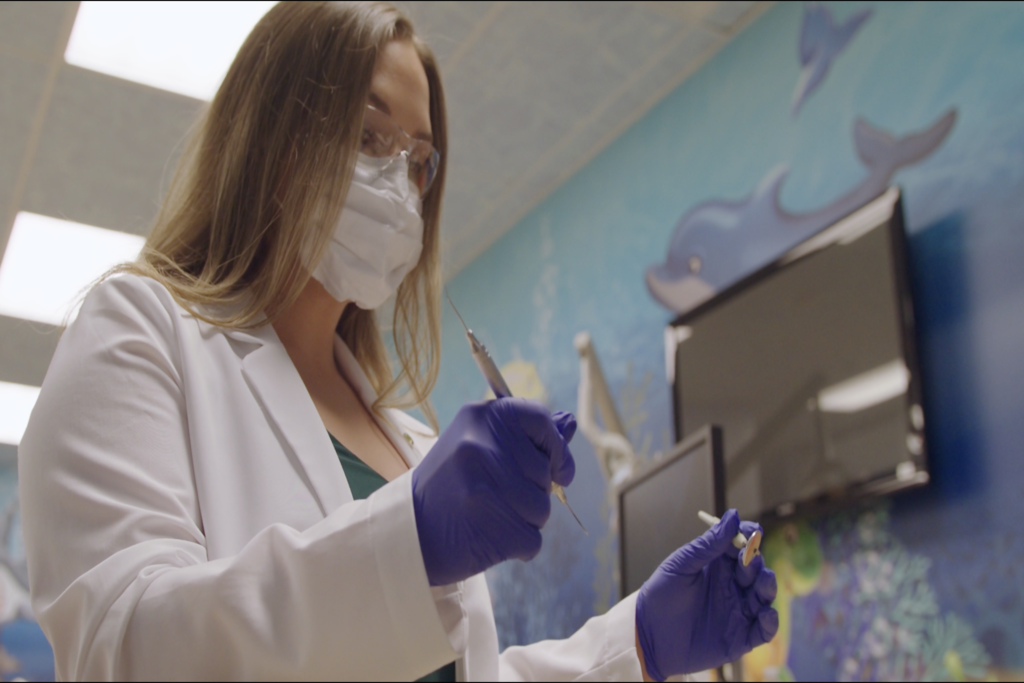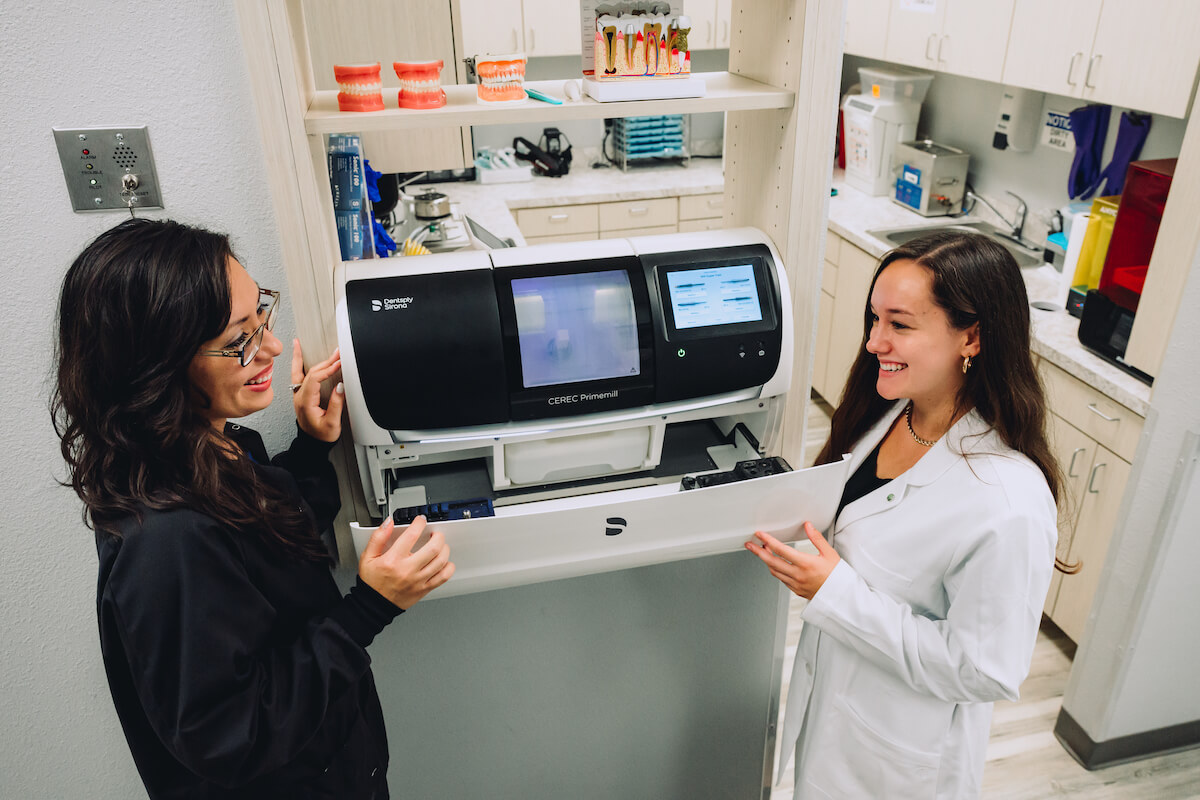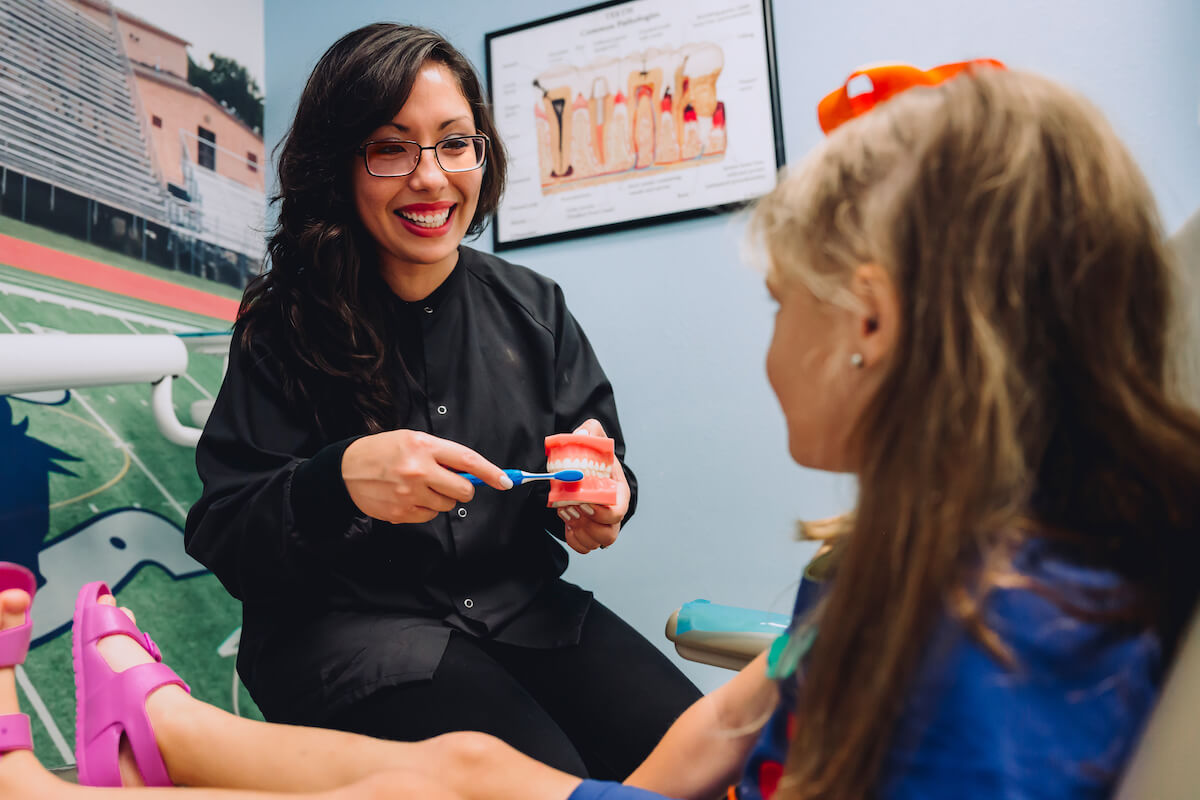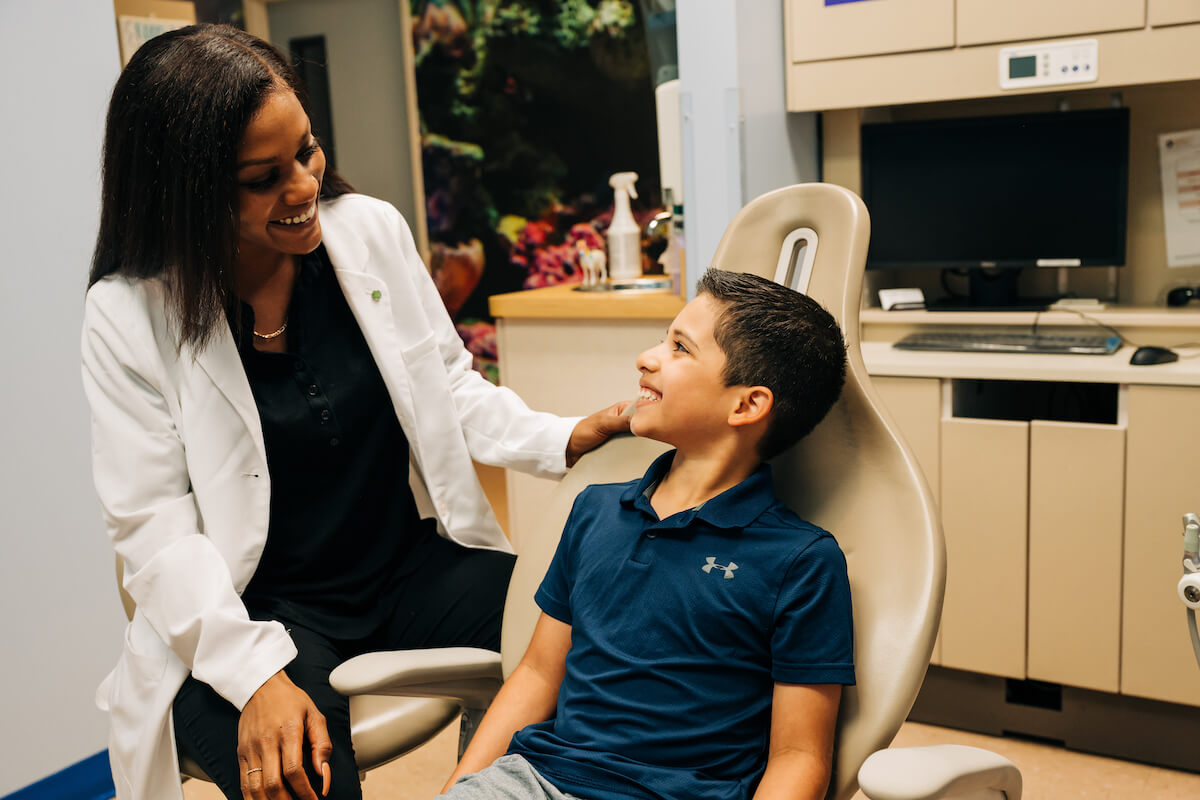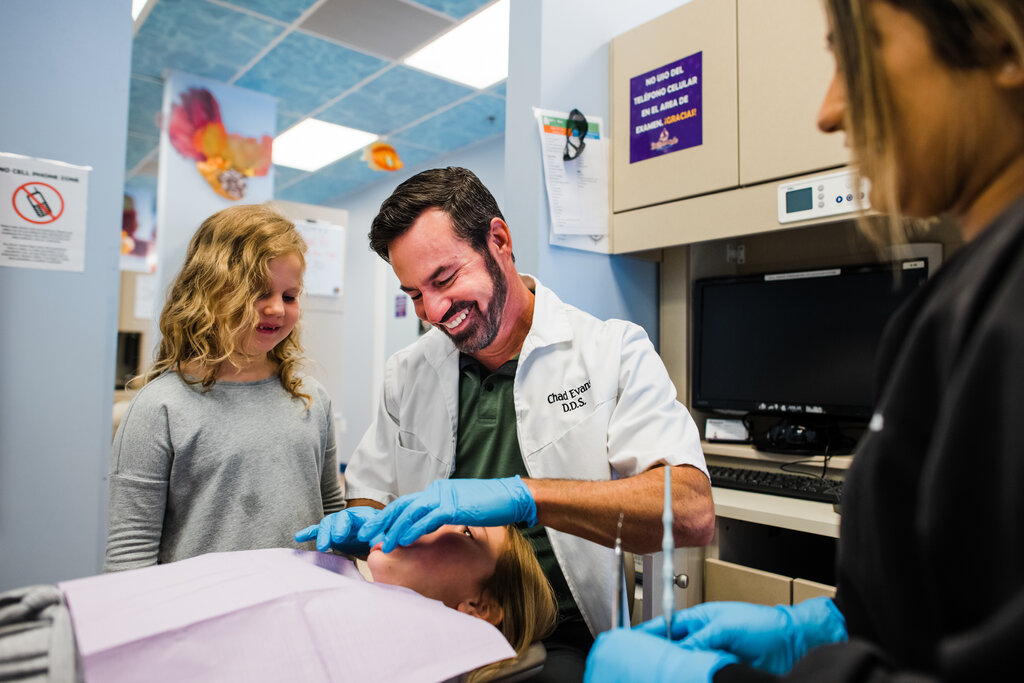
Here at Community Dental Partners, we want to build teams of energetic clinicians with positive attitudes and excellent technical skills. Most importantly, we are looking for doctors who understand what it takes to be true leaders in their immediate practice and the industry. Check out these 10 essential skills for CDP dentists to see if we are a good fit.
Must-Have Technical Skills for CDP Dentists
There are some must-have skills every dentist needs. Hard skills or technical skills are the things you need to fulfill your role as a dentist. They are what let you function in the day-to-day aspects of practicing. But being a great practitioner means more than just being able to fill a cavity. These are four technical skills we especially value for CDP dentists.
Manual Dexterity
This goes without saying, but dentistry depends on dexterity. When working in tight spaces, and half a millimeter can mean the difference between a successful filling and root canal therapy, fine motor skills mean everything. Work on your dexterity, and keep your fingers nimble. Strengthening with squeeze balls and finger lifts can help with muscular development, but don’t let your hands get stiff! Stretch your wrists and fingers daily, and consider warming up before you start work for the day. Some dentists even have high-precision hobbies like video games, golf, and knitting.
Problem-Solving
Dentistry means thinking on your feet and pivoting on a dime when things go wrong. As much as we want everything to go perfectly at all times, reality rarely delivers a completely problem-free day. Every procedure will be different, and “textbook” doesn’t really exist in practice. That’s why problem-solving is an essential skill for dentists at CDP. Problem-solving hinges largely on mental flexibility, accurate assessment of the challenge, and adaptability when designing your solution. Brain games are a fantastic way to stay sharp. Think about puzzles, word games, and games that require manipulating shapes.
Clear Communication
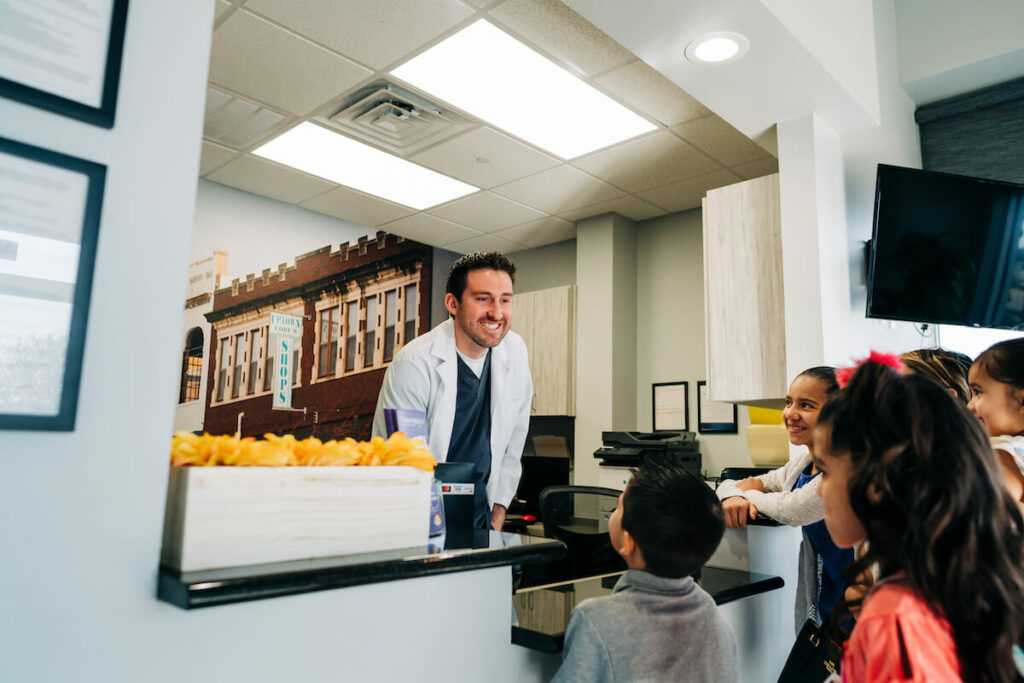
To keep your days running as smoothly as possible, your team needs to be on the same page, and your patients need to feel informed and involved in the decision-making process. That’s why communication is a priceless skill for great dentists. Remember that good communication is a two-way street. You’ll need to be able to express yourself effectively but also receive communication gracefully. Your team must feel comfortable approaching you with problems and know they’ll be heard. Likewise, your patients need to trust that you have their back, even when they’re dissatisfied with how a crown feels or how a filling looks. Clear communication skills will not only benefit your professional life, but it can also enhance relationships across all aspects of your life!
Time Management
Learning time management is one of the most challenging tasks for new dental professionals. Part of this will come from learning how long each procedure step takes so that you can pace yourself throughout an appointment. You’ll also need to know when you can step out of the operatory for a moment to take care of other items on your checklist. Excellent time management will help you maximize your productivity and decrease stress. Try to note how much time you spend talking to your patients when they sit down for a procedure. How long does it take you to administer an anesthetic? What about your average for cavity prep? Over time, you’ll get a good sense of when to speed up and when you can take your time. Even then, there will be days you’ll need those problem-solving skills to recover when you can’t stay on time. It’s okay, though, since your CDP team will be there to have your back!
Soft Skills for Dentists at CDP
Beyond the technical skills to do the job, a few personal traits will make a real difference for your patients and your quality of life.
Confidence Without Arrogance
Your patients need to trust you. They need not just believe you know what you’re doing but also believe that you are the right person for the job. That means conveying a sense of calm confidence. Even when you feel anxious about treating a particular patient (and there will be cases that keep you up at night even after decades of experience), you’ll still need to show confidence. Just don’t overdo it! Coming off as arrogant does little to help your cause, and it can put patients off and compromise trust. Remember that you know what you’re doing but always have more to learn. Trust in your skills, but always work with compassion.
Humility
A healthy sense of humility will help you achieve that perfect balance of confidence without arrogance. It will also help you remember your real boss: your patient! Humility is “a modest view of one’s own importance.” Sure, you worked hard for many years to earn your position as a dentist. But any experienced dentist worth their salt will tell you they’d be lost without their assistant! Remember that every team member is as important as you, and your patient is the most important. Humility is an exceptional way to improve relationships and increase trust.
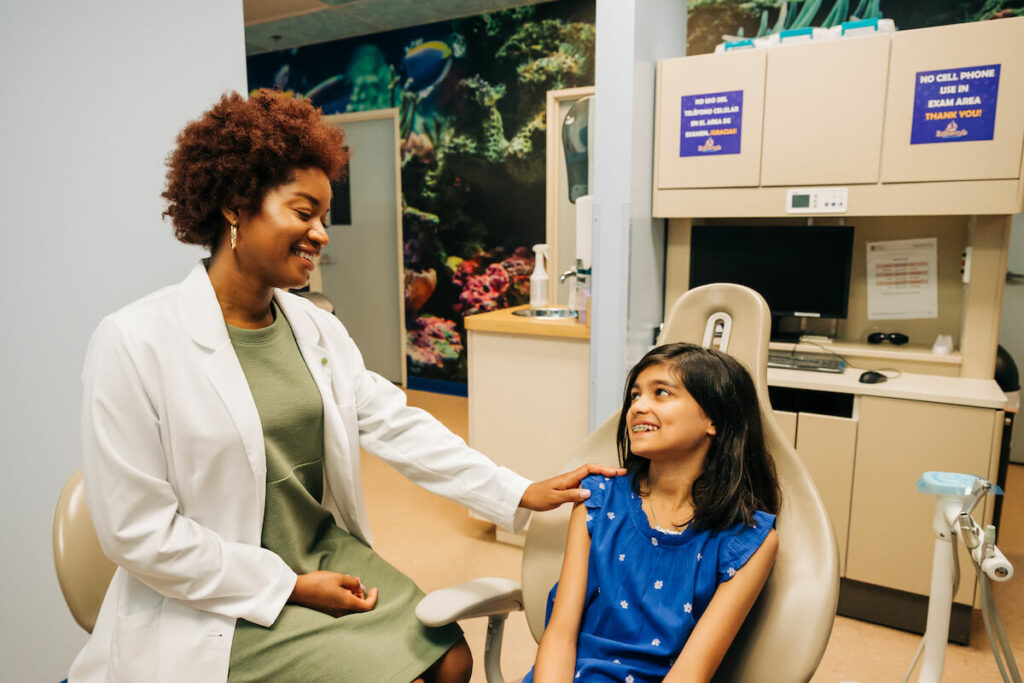
Compassion
Compassion goes hand-in-hand with humility. Just as humility means not overestimating your importance, compassion means not underestimating or dismissing the concerns or suffering of others. When your patients trust that you understand their concerns and believe them when they describe their suffering, they will trust you to care for them. Genuine compassion means putting yourself in their shoes and working accordingly. This means the world to high anxiety and fearful patients. Compassionate listening is also a cornerstone of good communication.
True Leadership
Have you ever worked for a boss or learned from a professor who wanted to be in charge but didn’t know how to truly lead? It can be frustrating and awkward to deal with a person in a position of power who throws their weight around thoughtlessly. As a dentist, you will be in a leadership role, even if you’re not the practice owner. True leadership means taking those communication skills, humility, and compassion and helping each team member work their best. Don’t be afraid to get your hands dirty and jump in to help when needed, even if tightening that screw isn’t your job. Lead by example instead of just giving instructions.
Focus and Energy
Dentistry can be hard. It can take a toll on your body, and many dentists suffer from neck and back pain, headaches, and stiffness in their wrists and fingers. It can also be mentally taxing, making it challenging to maintain focus. Career longevity in dentistry demands incredible focus and high energy. We don’t see these things as inherent traits you’re born with. You can continually strengthen your focus and boost your energy! The key to both is establishing balance in your life. Without balance, work becomes a drag. An exhausted, miserable doctor cannot provide their patients the highest level of care, so invest in the rest of your life!
Love of Learning
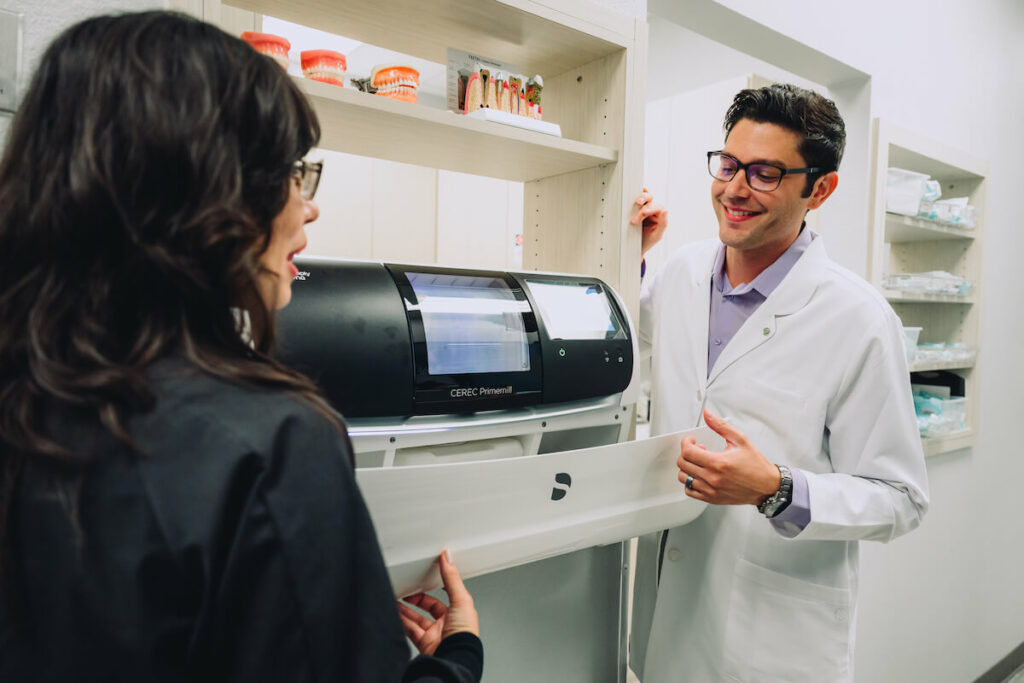
Being a great dentist means a lifetime of learning. Not only will you need to complete continuing education courses to maintain your license in good standing, but you’ll also need to adapt to new techniques and technologies as they develop. While you’ll be at the field’s cutting edge when you graduate, methods will continue to change, sometimes faster than you can believe. Love of learning will give you a chance to keep up while also keeping you excited and energized for your work. Nothing fights burnout like the novelty of a new way to do things!
More than anything, we hope your dentistry career will be fulfilling for you. If you can hone these 10 essential skills for dentists, you will have a remarkable career, whether with us or another practice. Regardless of where you land, honing these skills will always benefit your patients; at the end of the day, that is the most important thing. Schedule a call with a Hiring Manager to learn more about beginning your career as a dentist with CDP!



